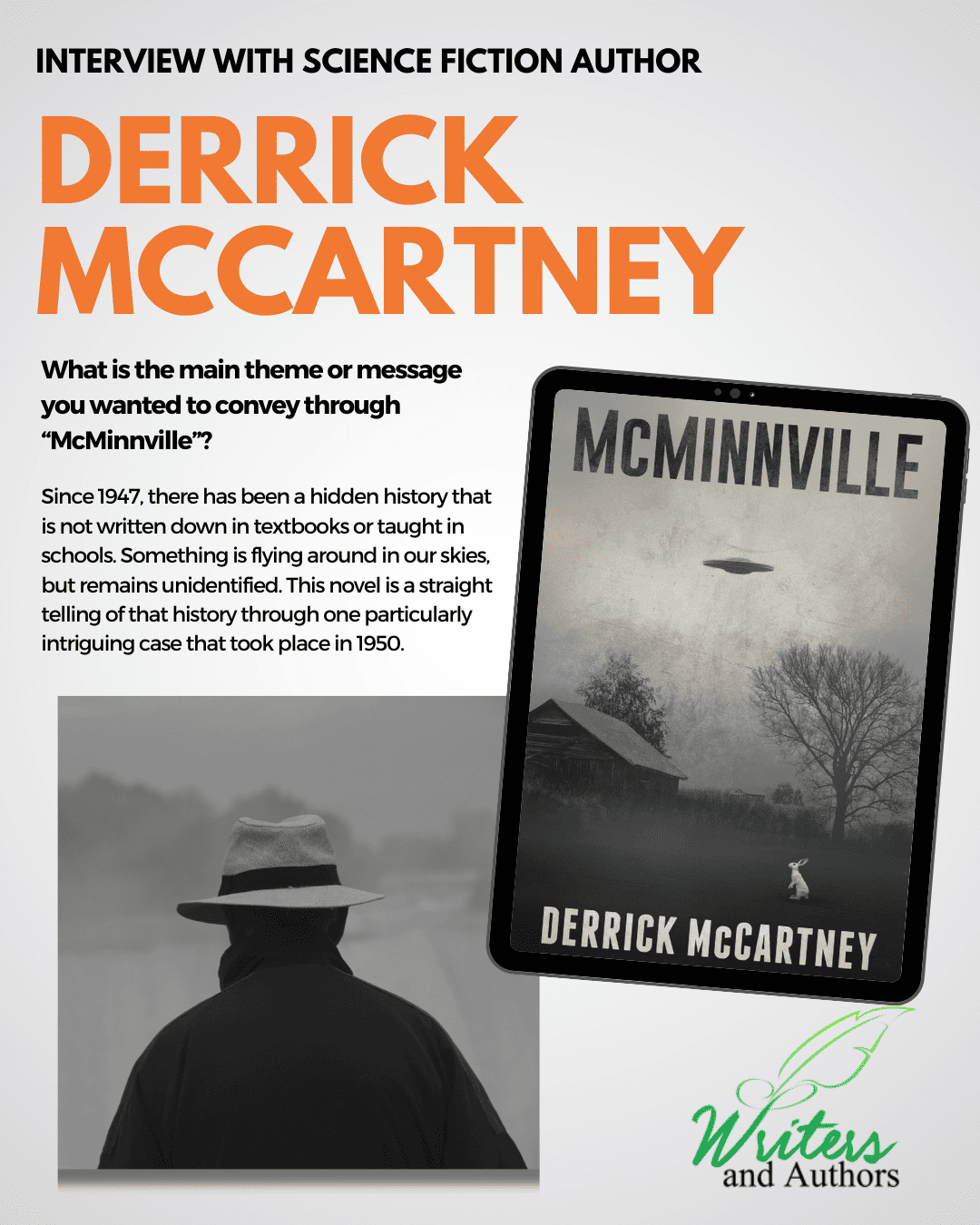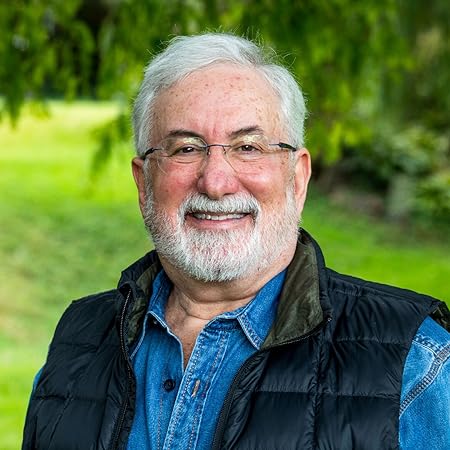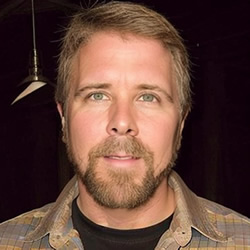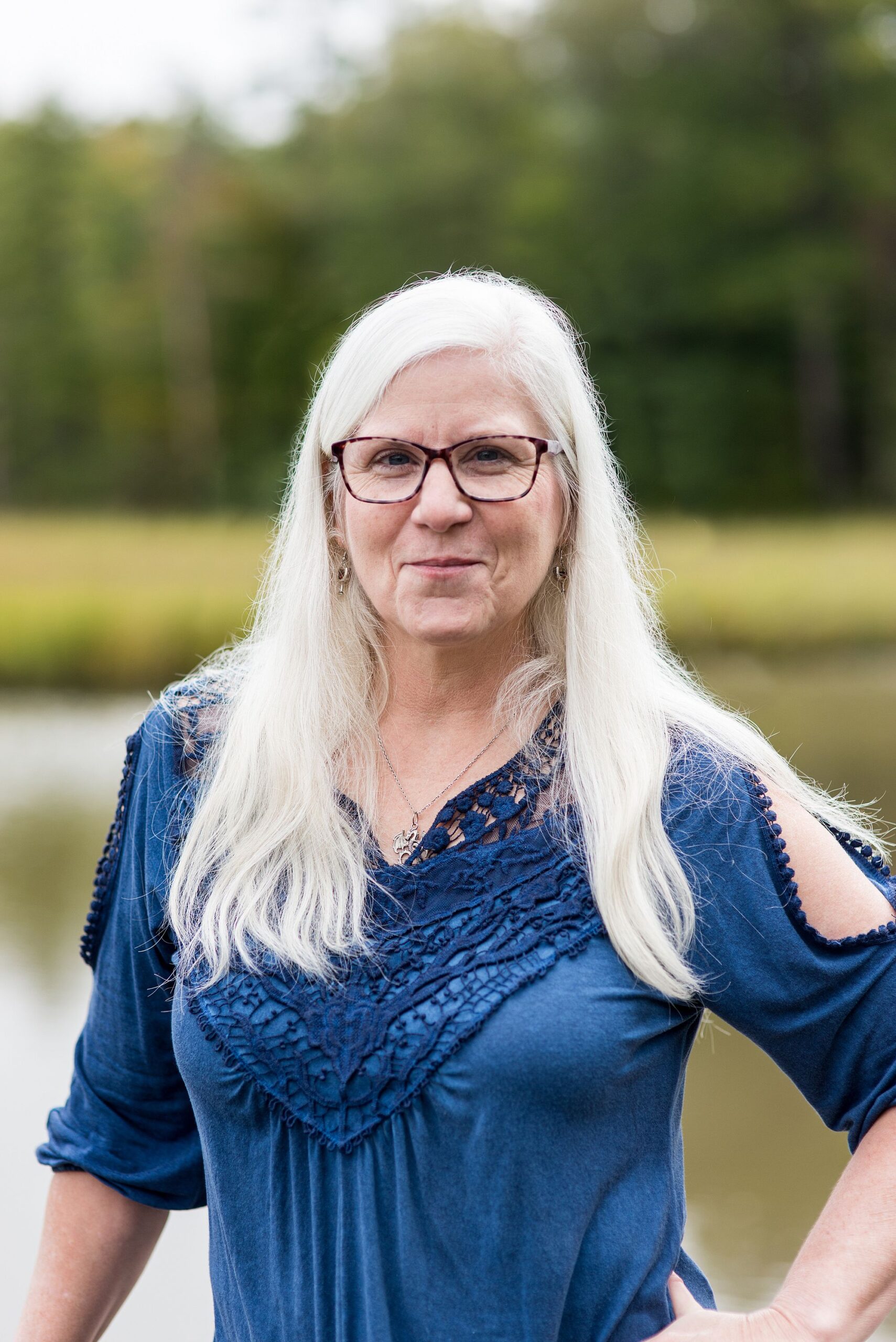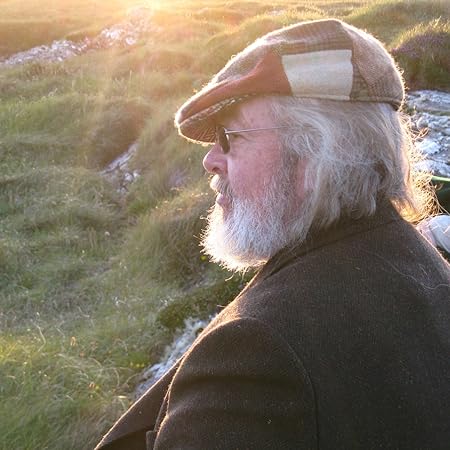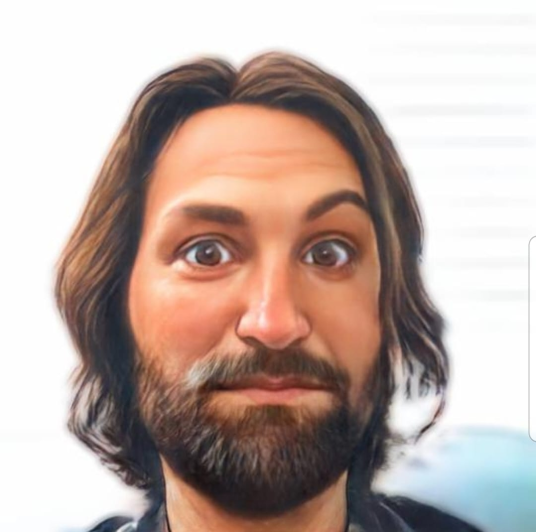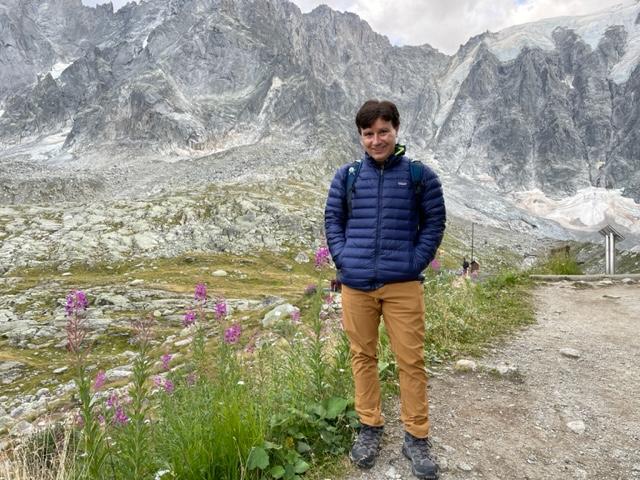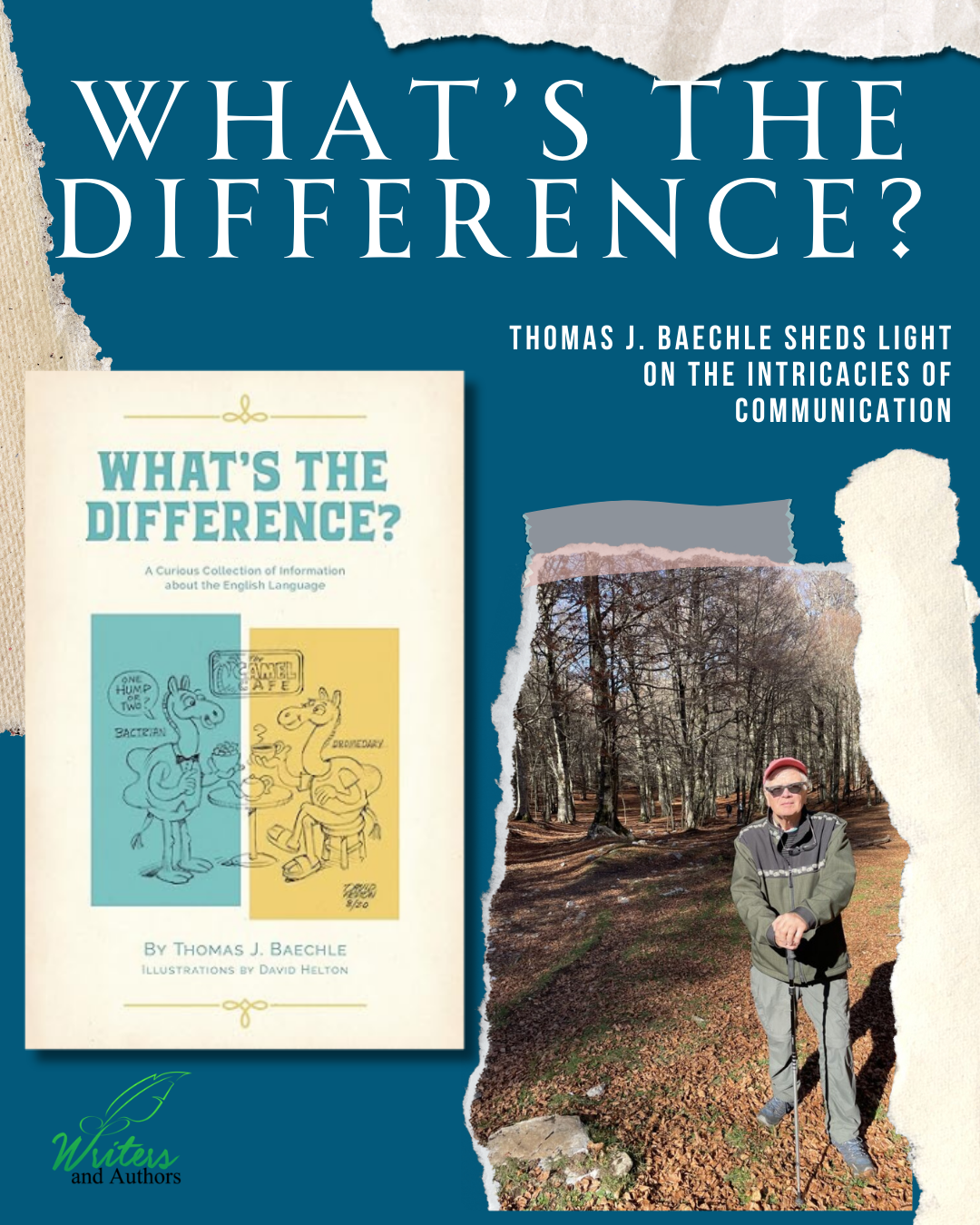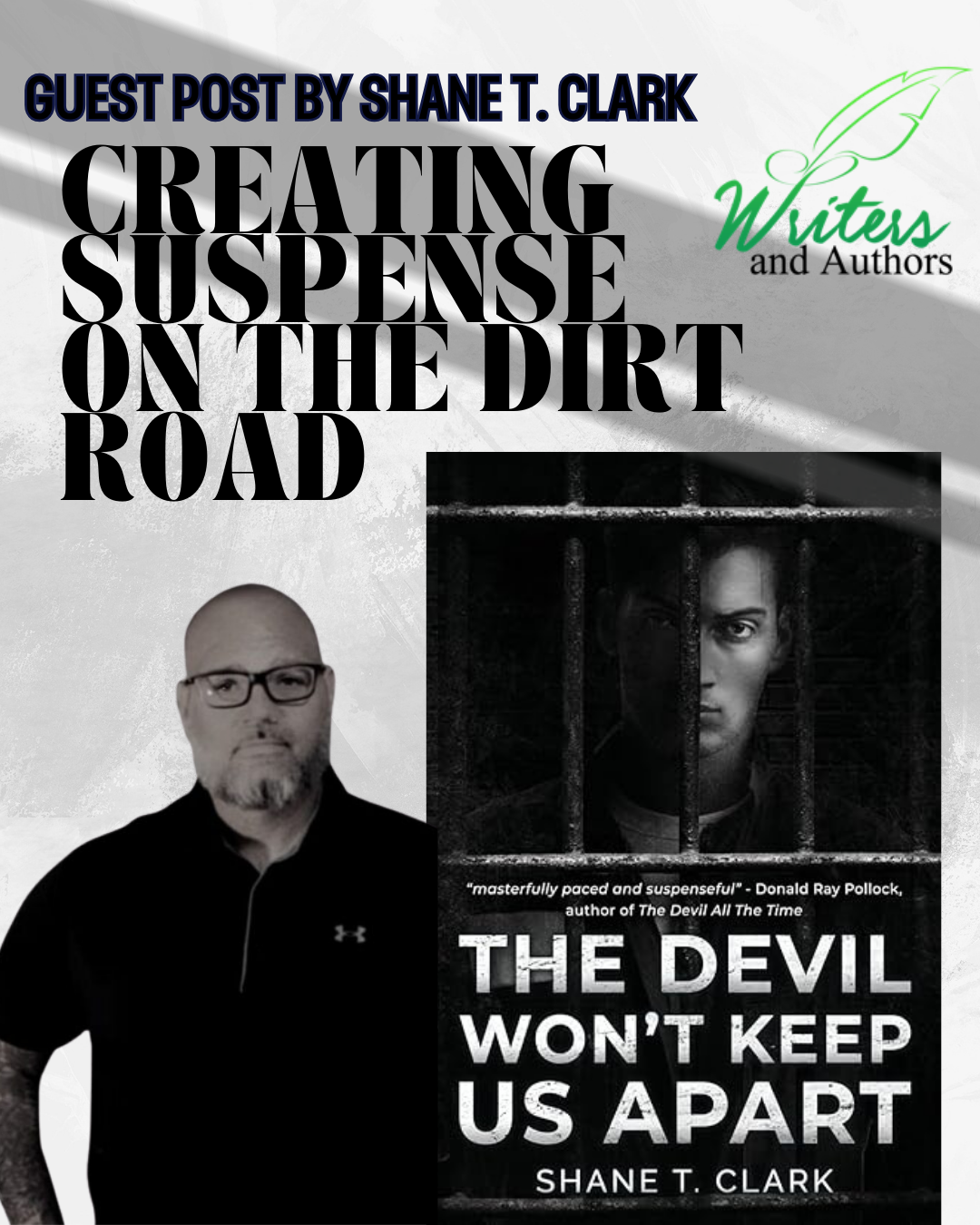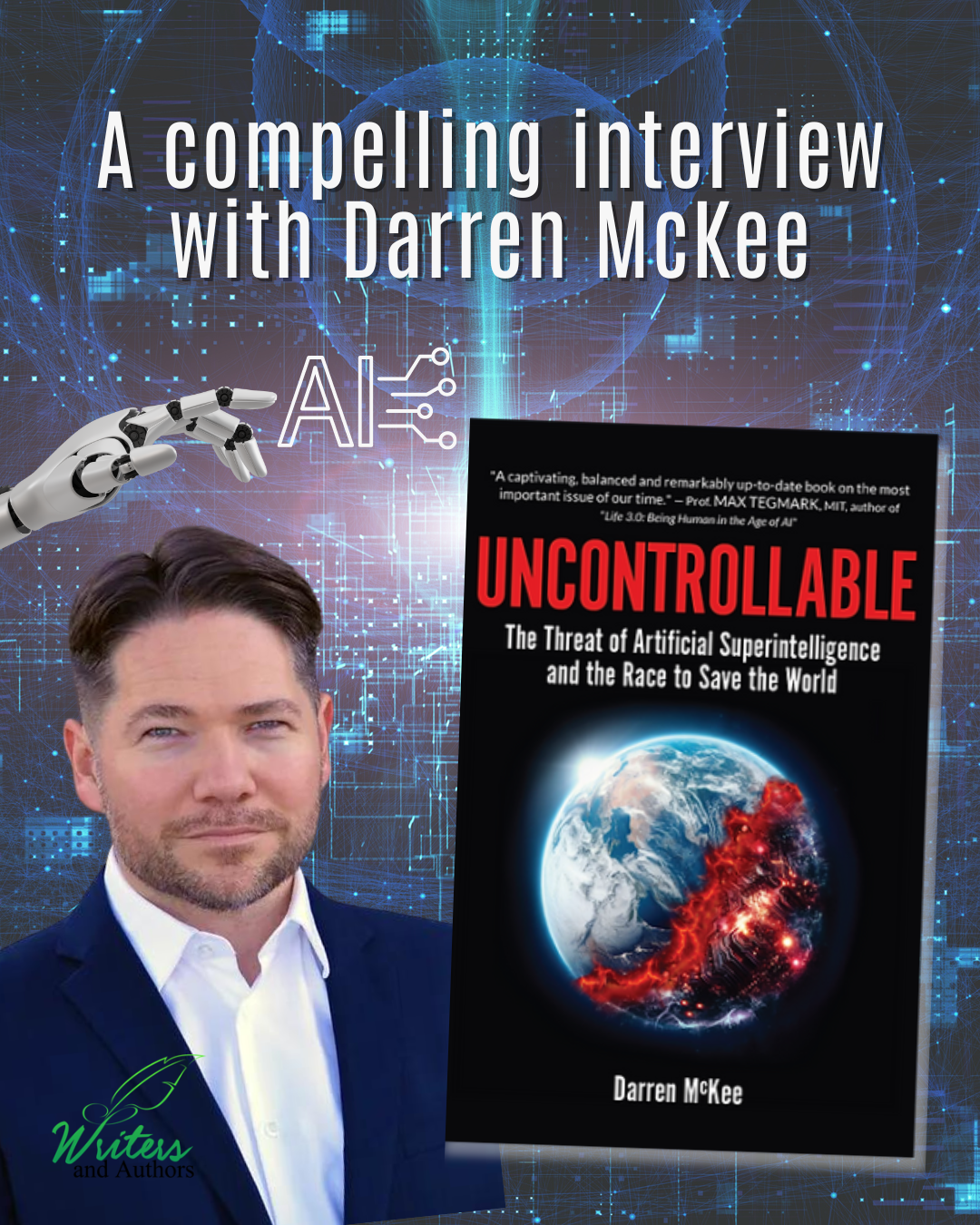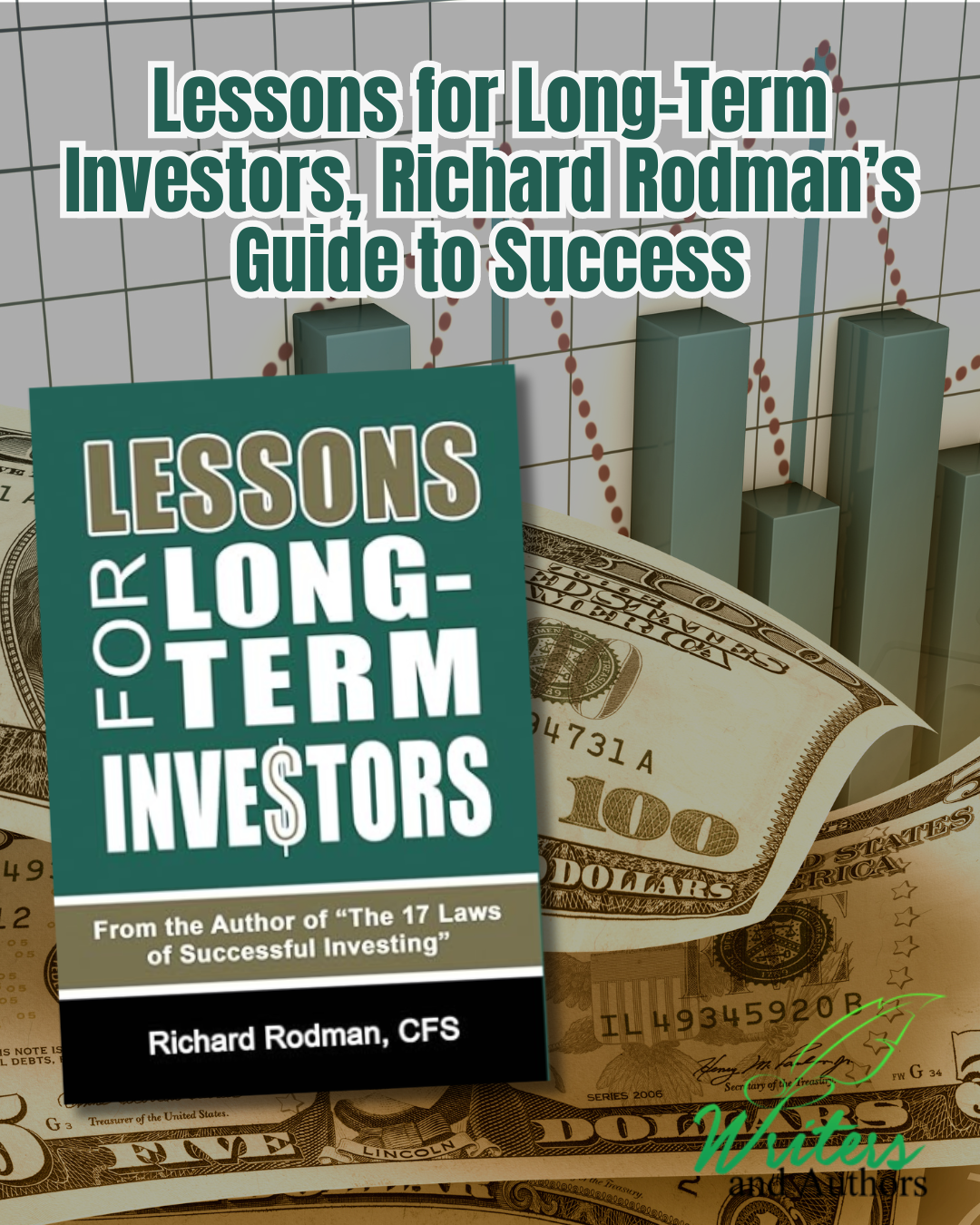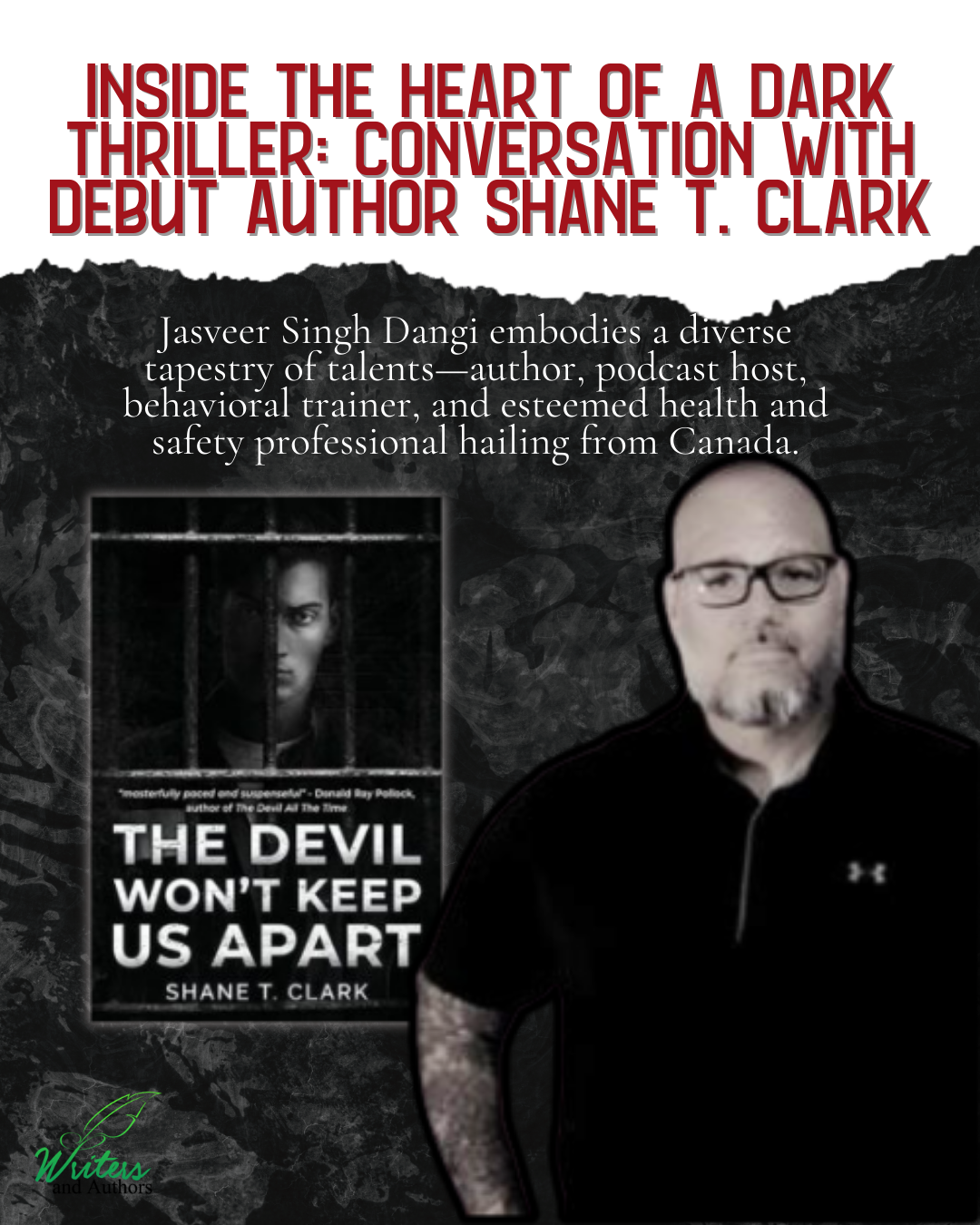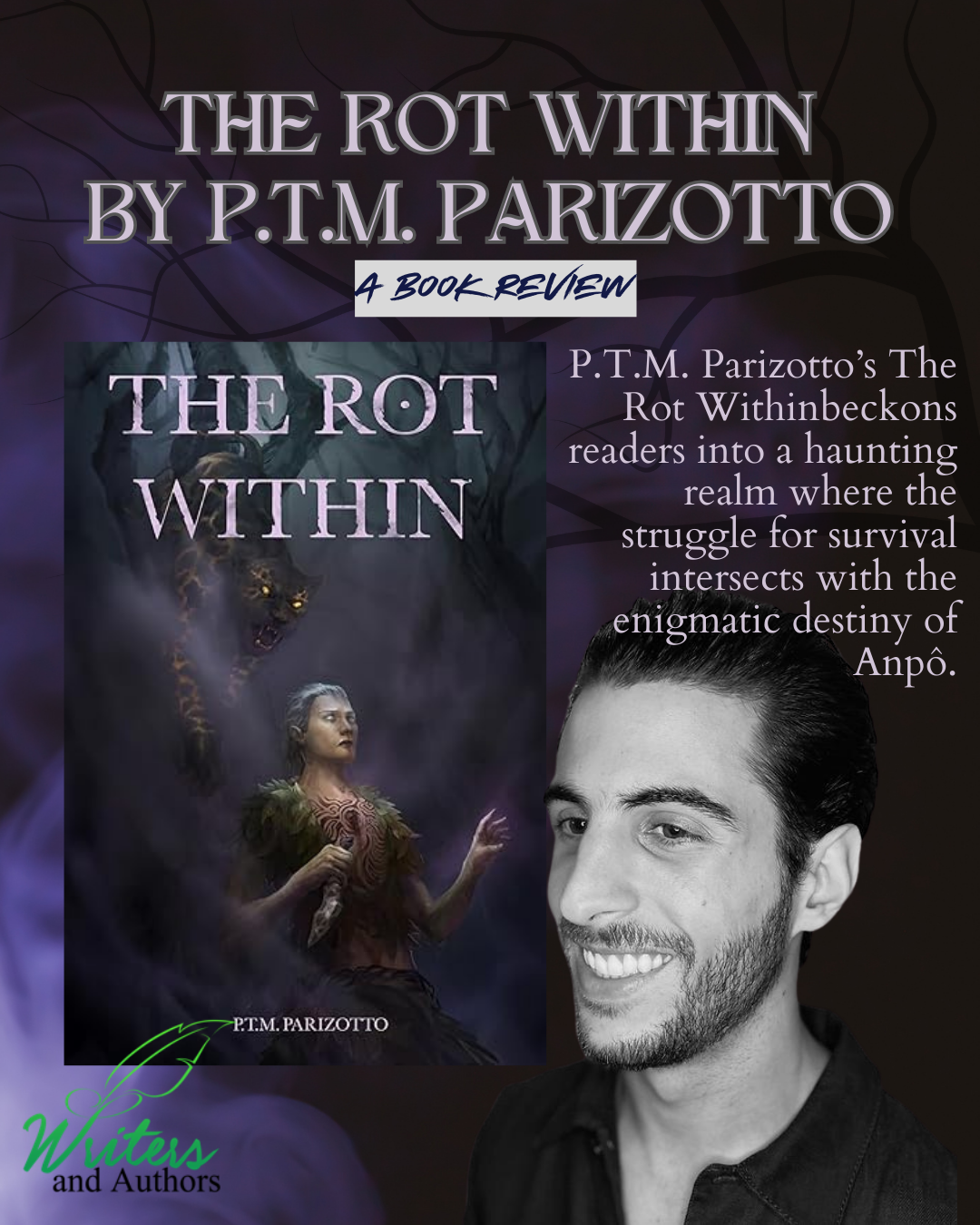Thank you for joining us, Mr. McCartney. It’s a pleasure to have the opportunity to discuss your recent work, “McMinnville.” Let’s dive in.
- Can you tell us a bit about yourself and what inspired you to write the book “McMinnville”?
I was born in El Paso, Texas and grew up in Tennessee. Went to Vanderbilt for undergraduate school and George Washington University in DC for graduate school. After a stint in the US government, my career has been spent in defense think tanks. I have written several non-fiction books on North Korea. McMinnville is my first work of fiction. I was inspired to write the book by my fascination with the UFO phenomenon, which stretches back to my childhood and television shows like Twilight Zone. When COVID rolled around, I had time on my hands and I guess the writing bug bit me.
- What is the main theme or message you wanted to convey through “McMinnville”?
Since 1947, there has been a hidden history that is not written down in textbooks or taught in schools. Something is flying around in our skies, but remains unidentified. This novel is a straight telling of that history through one particularly intriguing case that took place in 1950. It is not a novel about aliens or conspiracies. It is a novel about the phenomenon and how it can manifest in the strangest of ways. As for the message of the novel, it would be that the truth is out there. Whether it is alien, inter-dimensional, or natural phenomenon, we do not know, the government for the longest time has turned a blind eye when it comes to the phenomenon. But whatever that truth is, it will change the way we understand reality and our place in the universe.
- What was your research process like for this book? How did you gather information about McMinnville?
I spent a lot of time in musty archives researching the official history of the UFO phenomenon. I poured over hundreds of case files and declassified reports about what the US Government knew and how it tried to get its head around something that was so ethereal. In order to develop my protagonist, I talked with several detectives to get a sense of how they approach their work, especially working cold cases.
- McMinnville is the title of your book. What significance does the town hold, and how does it relate to the story?
On May 11, 1950, Evelyn and Paul Trent took two photographs of something flying over their farm just outside of McMinnville, Oregon. These two photos have been proclaimed by many experts to be the some of the clearest and most convincing photographs of a UFO ever taken. It is this case that I built my novel around. The word “McMinnville” holds a special place in the lore of ufology.
- Could you give us a brief overview of the plot and the main characters in “McMinnville”?
Some of the best science fiction and paranormal mysteries are ones that are firmly rooted in the normal, everyday lives of the character(s), not in another world or sometime in the distant future. The otherworldly character of the story slowly emerges as it would in real life, creeping into the consciousness as opposed to a great reveal. McMinnville is written in such a manner. It is written in the third person and has an introspective point of view so the reader can come to grips with the strange phenomenon and the mystery at the heart of the novel alongside the major character.
The story focuses on a retired detective (Ray Baker) and his quest sixty years later to pin down the legitimacy of two photographs taken in 1950 of a UFO: were they a clever hoax or pictures of a truly strange flying craft. His investigation takes him across the country and back as he digs through musty archives and interviews retired government insiders, scientists, and intelligence operatives. As his investigation into the cold case unfolds, he comes across another mystery that took place on the same day just a few miles from where the photos were taken. This mystery borders on the unbelievable and if true rewrites human history and basic science as we know it. The closer he gets to solving this second mystery, the more he becomes ensnared in a phenomenon over which he has no control.
As for the protagonist, Ray Baker, he is a everyman. Although he is in his mid-sixties and dying of cancer, he has a youthful look and boyish charm. He is devilishly smart and has a sixth sense when it comes to the cases he is working on. He also is someone who looks out for his fellow man. Think Jimmy Stewart but much more ruggedly handsome.
- Were there any particular challenges or obstacles you faced while writing this book? How did you overcome them?
The first major challenge was how to transition from Part I of the novel, which took place in 1950 to Part II of the novel, which took place in 2011-12. I looked at several novels that deal with huge gaps in time, such as Stephen King’s It. I eventually settled on a transition chapter written in a stream of consciousness format that describes the evolution of the UFO phenomenon within the context of how American culture changed over the decades. By the end of the chapter, the reader feels as if he has traversed time.
Another challenge I faced was how to end the novel. This novel was originally meant to be a stand alone book about the history of UFOs. Somewhere along the way, it morphed into a paranormal mystery that will be played out over three books. That meant making the UFO phenomenon the launch point of the novel, but not the central focus of the trilogy. For that I needed the protagonist to have a greater purpose; a journey that he must travel. I settled on creating a love interest for him, who appears toward the end of the first novel. All I can say for now is that the relationship between these two characters has a greater meaning and is tied to the cosmic mystery at the heart of this trilogy.
- What do you hope readers will take away from reading “McMinnville”?
In addition to enjoying a good mystery, I hope it gives the reader something to think about. Everyone has the individual responsibility to make the choice between the real world and an artificial world. This novel takes this point to the extreme, but as we age from children to adults, human beings construct a narrative about how the world works. We should not assume that that narrative is always right.
- Are there any specific aspects of the town or its history that you found particularly fascinating or surprising during your research?
McMinnville is a charming town nestled in the wine country of Oregon. In many respects, it is a typical American town, very suburban. The perfect place for such a bizarre incident to take place. I visited Sheridan, Oregon, where the incident actually took place. I passed by the farm, which looks a bit different than it did back in 1950. I walked up and down South Bridge Street where the alleged abduction took place in order to get the geography right in my head. I also used aerial photographs of the area taken by the Department of Agriculture in the late 1940s to give me a bird’s eye view and the relationship of the Trent farm to the town of Sheridan.
- Did you draw any inspiration from real events or people while crafting the story of “McMinnville”?
Of course, the case at the heart of the novel is based on a real case. Because of the significant amount of research done by ufologists, such as Bruce Maccabee, I had a lot of material on which to construct Part I, making the characters come to life. I used the Air Force’s investigation into the disappearance of one of its interceptor planes in 1953 to construct the story of the missing pilot who returned thirty years later.
In researching the area, I poured through the archives of the Telephone Register, the newspaper of record, focusing on the months leading up to the incident. In the book, there are references to various local stories. They were taken directly from the news coverage of the time.
- Are there any specific scenes or moments in the book that you are particularly proud of or that were especially challenging to write?
The scenes between Ray Baker and Kayla Park were tricky to write. Given the significant age gap between the two characters, I wanted to be careful not to lean too far in the direction of a romance and keep it within the friendship zone. This was particularly difficult given that the two characters were attracted to each other and their friendship was growing. But in order for the longer narrative of the trilogy to work, they had to stay within certain boundaries. I think I captured the tension between the two in the scene in which Ray tries to comfort Kayla after she has broken up with her boyfriend, as well as the two scenes after Kayla has discovered Ray’s secret.
Another scene that is central to the novel is the discussion Ray Baker has with a theoretical physicist, which provides some of the hard science behind UFOs and inter-galactic/inter-dimensional travel. I attended numerous lectures by notable physicists and read a lot of very technical journals to come up with the dialogue. I needed to make the physicist sound like someone who is at the cutting edge of string theory, quantum mechanics, and the theory of wormholes.
- How do you think your background or personal experiences influenced your writing of “McMinnville”?
The character of Ray Baker is infused with my personality. Much of his childhood history is my history. The off the cuff stories that he tells about his past and the places he has lived (other than Oregon) come directly from my biography.
- As an author, what are some of the key themes or topics you enjoy exploring in your work?
I enjoy exploring the everyday normal with a twist. I enjoy writing about the nexus between physics and consciousness. I enjoy writing about age old deeply held secrets. When you combine these three themes, you usually end up with paranormal mystery or speculative fiction. The only time that I stray from this is when I am writing romance novels, which have enough mystery embedded in the connection between two individuals.
- What do you consider to be the most rewarding aspect of being a writer, and what advice would you give to aspiring authors?
Writing it a great creative outlet. You can build your own world populated by your own favorite characters. Your daydreams about what you would like your life to be like can manifest themselves in your writing. As for advice for aspiring authors, I would simply say write things that you are passionate about. Writing a novel is hard enough. Unless you are in love with the topic or the characters, it will be a hard slog.
- Are you currently working on any new projects or books? If so, could you give us a glimpse into what we can expect from your future work?
I have completed four novels since McMinnville, which are awaiting publication. Living in Wonderland is the sequel to McMinnville. Writer’s Block is a dystopian novel about a man who finds himself literally alone in New York City. Neighbors and The Impossible Friendship are romance novels that explore how people from different generations and different cultures find common ground.
- Finally, is there anything else you would like to share with your readers or potential readers about “McMinnville”?
There is something going on in our world that is currently unidentified. The US Government has finally come to the conclusion that the phenomenon is real. What it is, we don’t know. It could be extraterrestrial. It could be interdimensional. It could be some form of natural phenomenon, such as we see in quantum physics creeping into the world we inhabit. Whatever it is, the phenomenon will continue to perplex and mystify us until it is revealed. In my opinion, the truth is out there and this phenomenon is on a clock. Reading McMinnville and the entire trilogy will lay out for you one theory of what might be happening.
Thank you for your time, Mr. McCartney. We look forward to reading more of your work in the future!
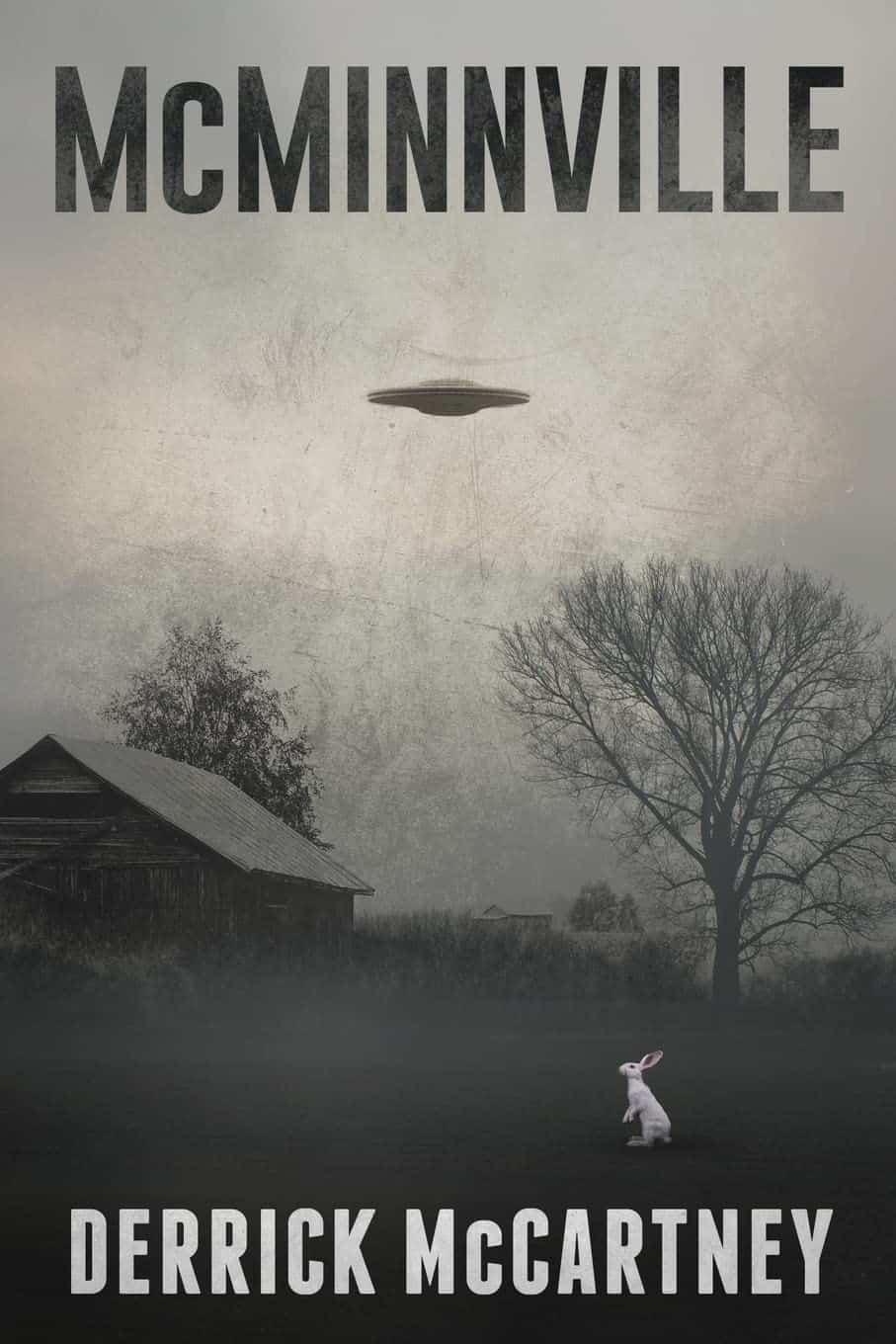
McMinnville
Two photographs taken on a spring evening in 1950 that seem to show the impossible-we are not alone. A thirteen-year-old girl disappears the same evening, but returns thirty years later without aging a day. A dying detective on the hunt for the answers to one mystery falls afoul of a more profound mystery that calls into question all of human history and the science on which the universe is based. McMinnville is the story of one man’s coming to terms with his mortality and the inconceivable, while falling in love for a second time, something he thought was impossible.
Ray Baker is a retired NYPD detective, dying of cancer and dealing with the crushing loneliness after the death of his wife. He wants to make the last few months of his life count by traveling cross country to the places where he grew up. Along the way, he stumbles upon a cold case that took place on May 11, 1950, a few hundred yards from his childhood farm outside of McMinnville, Oregon. At a little past seven in the evening on that day, Evelyn Forsyth was feeding her rabbits when she looked up to see a craft floating soundlessly toward her. She called for her husband, Glenn, to come with his camera. Over a span of a few seconds, he took two photographs before the craft tipped up on edge and sped away. That was the story that appeared in the Telephone Register, McMinnville’s local paper under the heading “At Long Last-Authentic Photographs Of Flying Saucer[?]” A month later, the photographs were featured in the June edition of Life Magazine. Were they real or a clever hoax? Ray takes it upon himself to answer this question, applying his considerable detective skills. But in doing so, he steps through the looking glass into a world that makes him question everything. If that was not enough, he also discovers that there is a clock and it is ticking down.
McMinnville is the first book in a trilogy that follows Ray Baker’s pursuit of life, love, and the truth, which is most definitely out there.
Derrick McCartney was born in El Paso, Texas and grew up in Tennessee before moving to the Washington, DC area. Despite a degree in Soviet and East European studies, he made a name for himself as an expert on North Korea. After a stint in the US Government, he has spent most of his career in defense think tanks. He has published several books and articles on international security affairs under his real name. This is his first work of fiction. Visit Derrick’s website https://derrickmccartney.com
Amazon https://amzn.to/44Nmeu9
Barnes and Noble – https://www.barnesandnoble.com/w/mcminnville-derrick-mccartney/1141405965?ean=9798985975970
Follow Derrick and McMinnville on Social Media
Facebook https://www.facebook.com/authorderrickmccartney/
Twitter https://twitter.com/mccartneybooks
Pinterest https://www.pinterest.com/derrickmccartneybooks/

